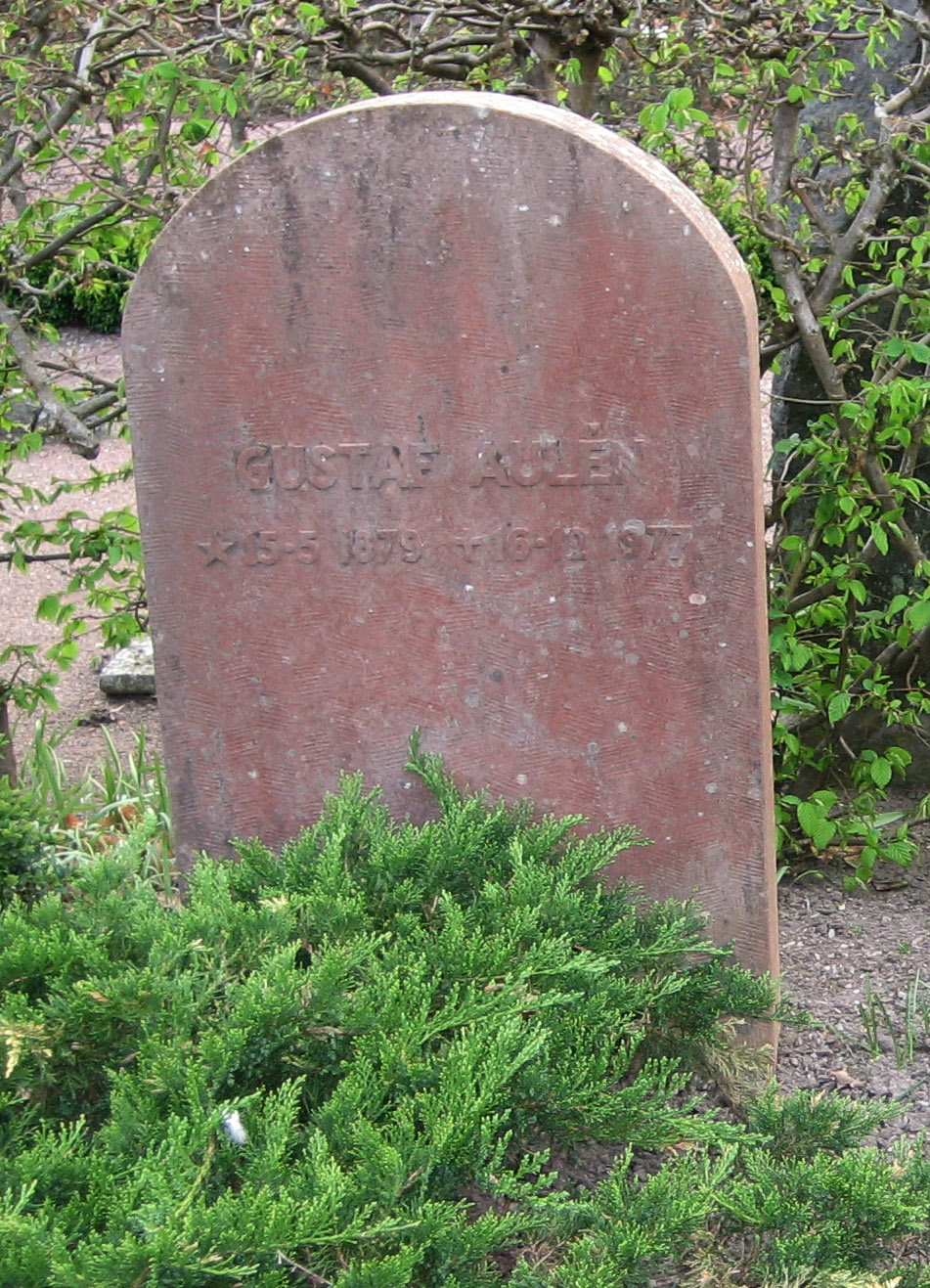|
Gustaf Aulén
Gustaf Emanuel Hildebrand Aulén (15 May 1879 – 16 December 1977) was the Bishop of Diocese of Strängnäs, Strängnäs in the Church of Sweden, a Lutheran theologian, and the author of ''Christus Victor'', a work which still exerts considerable influence on contemporary theological thinking on the Atonement in Christianity, atonement. Life Aulén was born in 1879 in Kalmar Municipality, Ljungby parish, Kalmar County, Sweden to Rev. F.J. Aulén and Maria Hildebrand. He married Kristine Björnstad in 1907. After studying at Uppsala University, Aulén became professor of dogmatics at Lund University in 1913, then Bishop of Strängnäs in 1933. Aulén's first major theological work was 'The Faith of the Christian Church', published in Swedish in 1923. His most famous work –''Christus Victor'' – followed in 1930, with an English translation in 1931. 'The Faith of the Christian Church' was translated into English in 1948. Aulén's work gained international recognition and m ... [...More Info...] [...Related Items...] OR: [Wikipedia] [Google] [Baidu] |
List Of Bishops Of Strängnäs
This is a list of the bishops of Strängnäs, part of the Church of Sweden that has its seat in Strängnäs Cathedral in Strängnäs, south of Lake Mälaren, Sweden). Bishops before the Reformation * Gerdar 1129–1159 * Vilhelmus 1171–1190 * Uffe 1208–1210 * Olov Basatömer 1219–1224 * Throgillius 1233–1241 * Col 1253–1257 * Finvid 1267–1275 * Anund Jonsson 1275–1291 * Isarus 1292–1307 * Styrbjörn 1308–1343 * Frenderus 1343–1345 * Sigmundus 1345–1355 * Thyrgillus Johannis 1355–1378 * Tord Gunnarsson 1378–1401 * Petrus Johannis 1401–1408 * Gjord Petersson Rumpa 1409–1410 * Andreas Johannis 1410–1419 * Arnoldus Johannis 1420–1443 * Thomas Simonsson 1429–1443 * Ericus Birgeri 1443–1449 * Siggo Ulphonis 1449–1463 * Johannes Magni 1463–1479 * Kort Rogge 1479–1501 * Mattias Gregersson (Lillie) 1501–1520 * Jens Andersen Beldenak 1520–1521 * Magnus Sommar 1522–1536 Lutheran bishops after the Reformation * Botvid Sunesson 1536–1555 ... [...More Info...] [...Related Items...] OR: [Wikipedia] [Google] [Baidu] |
Bishop Of Strängnäs
A bishop is an ordained clergy member who is entrusted with a position of authority and oversight in a religious institution. In Christianity, bishops are normally responsible for the governance of dioceses. The role or office of bishop is called episcopacy. Organizationally, several Christian denominations utilize ecclesiastical structures that call for the position of bishops, while other denominations have dispensed with this office, seeing it as a symbol of power. Bishops have also exercised political authority. Traditionally, bishops claim apostolic succession, a direct historical lineage dating back to the original Twelve Apostles or Saint Paul. The bishops are by doctrine understood as those who possess the full priesthood given by Jesus Christ, and therefore may ordain other clergy, including other bishops. A person ordained as a deacon, priest (i.e. presbyter), and then bishop is understood to hold the fullness of the ministerial priesthood, given responsibility by ... [...More Info...] [...Related Items...] OR: [Wikipedia] [Google] [Baidu] |
Theology
Theology is the systematic study of the nature of the divine and, more broadly, of religious belief. It is taught as an academic discipline, typically in universities and seminaries. It occupies itself with the unique content of analyzing the supernatural, but also deals with religious epistemology, asks and seeks to answer the question of revelation. Revelation pertains to the acceptance of God, gods, or deities, as not only transcendent or above the natural world, but also willing and able to interact with the natural world and, in particular, to reveal themselves to humankind. While theology has turned into a secular field , religious adherents still consider theology to be a discipline that helps them live and understand concepts such as life and love and that helps them lead lives of obedience to the deities they follow or worship. Theologians use various forms of analysis and argument ( experiential, philosophical, ethnographic, historical, and others) to help understa ... [...More Info...] [...Related Items...] OR: [Wikipedia] [Google] [Baidu] |
Atonement (moral Influence View)
Atonement (also atoning, to atone) is the concept of a person taking action to correct previous wrongdoing on their part, either through direct action to undo the consequences of that act, equivalent action to do good for others, or some other expression of feelings of remorse. From the Middle English ''attone'' or ''atoon'' ("agreed", literally "at one"), now meaning to be "at one", in harmony, with someone. Atonement "is closely associated to forgiveness, reconciliation, sorrow, remorse, repentance, reparation, and guilt".Ruth Williams, "Atonement", in David A. Leeming, Kathryn Madden, Stanton Marlan, ''Encyclopedia of Psychology and Religion: L-Z'' (2009), p. 83. It can be seen as a necessary step on a path to redemption.Linda Radzik, ''Making Amends: Atonement in Morality, Law, and Politics'' (2009). In law and society In the legal systems, the concept of atonement plays an important role with respect to criminal justice, where it is considered one of the primary goals of ... [...More Info...] [...Related Items...] OR: [Wikipedia] [Google] [Baidu] |


